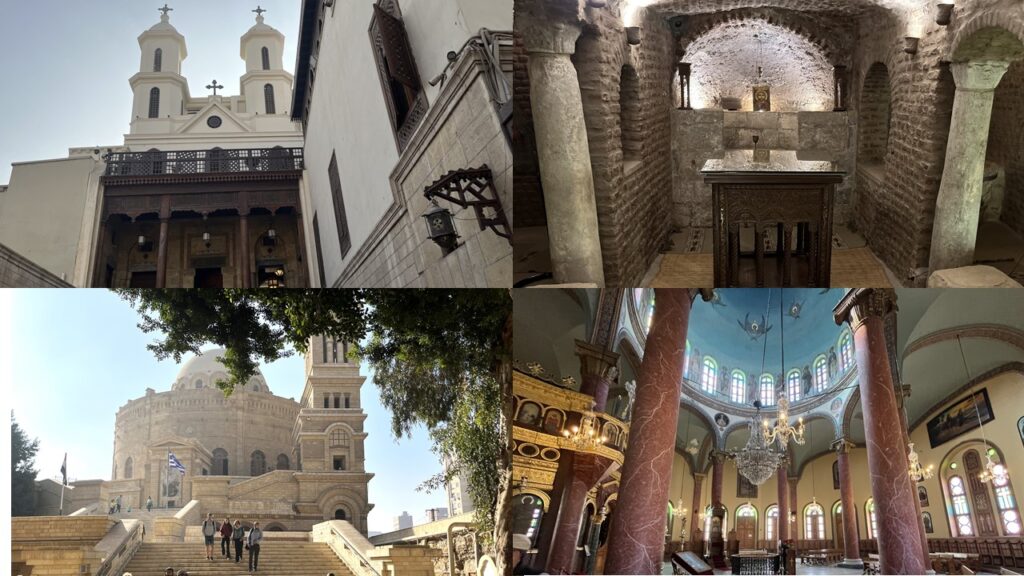
Clockwise from upper left: Hanging Church, crypt under Church of Saints Sergius and Bacchus, Orthodox Church of St. George, interior of Orthodox Church of St. George (Photos by Don Knebel)
Today, in our continuing tour of Egypt, we return to Cairo to visit an area often referred to as “Coptic Cairo.”
Members of the Coptic (Egyptian) Church trace their origins to Saint Mark, who they believe visited Egypt in 42 A.D. and became their first Patriarch. Today, the Coptic section of Cairo is known for a number of unique churches. The so-called “Hanging Church,” which traces its origins to the third century, rests on a foundation of logs and stone extended between the tops of the south gate towers of the Roman-era Babylon Fortress, creating the illusion that the church was suspended in the air. Centuries of accumulated debris have raised the ground level around the church by about 20 feet, nearly burying the towers and eliminating the illusion, but entering the church still requires climbing 29 steps. The vaulted wooden ceiling of the church is reportedly intended to suggest an inverted Noah’s ark. Seven huge icons above the altar are among the church’s 110 icons, one of which, called the “Coptic Mona Lisa” because of its iconic portrayal of Mary and the infant Jesus, was created in the eighth century.
The Church of Saints Sergius and Bacchus is named for Christian soldiers martyred in Syria during the fourth century by Roman Emperor Maximian. It is said to have been built on the site where Joseph, Mary and the infant Jesus rested for a few months while in Egypt after escaping from King Herod. The church is over a crypt, thirty feet below the current ground level, said to be where the family lived. The nearby Greek Orthodox Church and Monastery of St. George dates back to the tenth century, but was rebuilt in the early twentieth century because of a fire in 1904. The unusual circular church, which lies within the Babylon Fortress, features a magnificent domed interior.
Comments are closed.